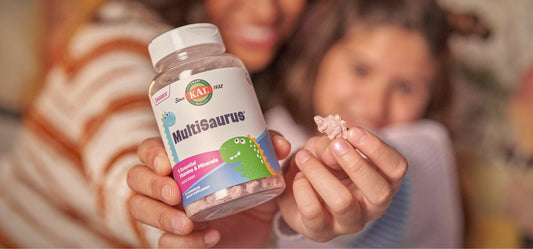What are antioxidants good for? What are free radicals and what do they have to do with antioxidants? Simply put, they are important to your health. Here’s why.
What is an Antioxidant?
The scientific definition of an antioxidant is that it is any substance that significantly delays or inhibits oxidation.1 The key word in that definition is oxidation because oxidation can trigger damage to cells. Oxidation is what happens when an apple or an avocado turns brown, or a car starts to rust.
Free radicals are molecules that cause oxidation inside the body which, if they are too abundant and not balanced out by antioxidants, are not good for several body systems including the immune system and heart.2 Understanding what antioxidants are requires an understanding of free radicals because antioxidants counteract free radical activity, which reduces oxidation.3
How Do Antioxidants Work?
Imagine a boat with a broken rutter or an airplane with only one wing. What happens? The boat or the airplane starts spinning out of control which can definitely do some damage if anything is near the spinning. That damaged boat or airplane is like a free radical and the reason free radicals are such unstable molecules is because they are missing an electron. What stops the spinning? You guessed it, antioxidants. Antioxidant molecules generously give up one of their electrons to the free radical, which stops the spinning and helps protect cells from damage.1
Free radicals are formed in a variety of ways. For example, exposure to cigarette smoke, pollution, and even sunlight can cause free radicals to form, and they are also created when we eat and exercise. 4
Where Can You Find Antioxidants?
Antioxidants are found in food and dietary supplements. Foods high in antioxidants include spices, nuts, green/black tea, and fruits, especially berries.5 The antioxidant compounds found in these foods are also found in dietary supplements in the form of vitamins such as A, C and E, minerals such as selenium and zinc, and herbal compounds such as catechin and quercetin.6
A plant-based diet that is high in fruits, vegetables, and whole grains is a great way to get the antioxidants you need; however, it can be difficult to get enough antioxidants with diet alone.5
How Often Do You Need Antioxidants?
Because exposure to free radicals happens constantly, it’s critical to consume antioxidants every day. You may also want to consider supplementing your diet with key antioxidant nutrients such as vitamin C, glutathione, quercetin, astaxanthin, and CoQ10. Many multivitamin supplements also contain valuable antioxidant nutrients. The key is to replenish your antioxidant levels every day so they can help support overall wellness and good health.
One well-known and well-loved antioxidant is vitamin C. Read more about the benefits of vitamin C to learn what these are and how they can help support whole body wellness. For more tips on nutrition, staying healthy and motherhood follow us on Facebook @kalvits and Instagram at @kalvitamins!
References
- Young IS, Woodside JV. Antioxidants in health and disease. Journal of Clinical Pathology. 2001;54(3):176-186. https://jcp.bmj.com/content/54/3/176
- Sharifi-Rad M, Kumar N, Zucca P, et al. Lifestyle, oxidative stress, antioxidants: back and forth in the pathophysiology of chronic diseases. Frontiers in Physiology. 2020;11. https://www.frontiersin.org/articles/10.3389/fphys.2020.00694/full
- National Institutes of Health. Antioxidants: In Depth. National Center for Complimentary and Integrative Medicine. 2013;November. https://www.nccih.nih.gov/health/antioxidants-in-depth
- Harvard School of Public Health. Antioxidants. The Nutrition Source. Accessed 2023;May.https://www.hsph.harvard.edu/nutritionsource/antioxidants/
- Carlsen MH, Halvorsen BL, Holte K, et al. The total antioxidant content of more than 3100 foods, beverages, spices, herbs and supplements used worldwide. Nutr J. 2010;9:3. https://www.ncbi.nlm.nih.gov/pmc/articles/PMC2841576/?report=reader#!po=22.9167
- Chun OK, Floegel A, Chung S, et al. Estimation of antioxidant intakes from diet and supplements in US Adults.The Journal of Nutrition. 2010;140(2):317-324. https://www.sciencedirect.com/science/article/pii/S0022316622069668




